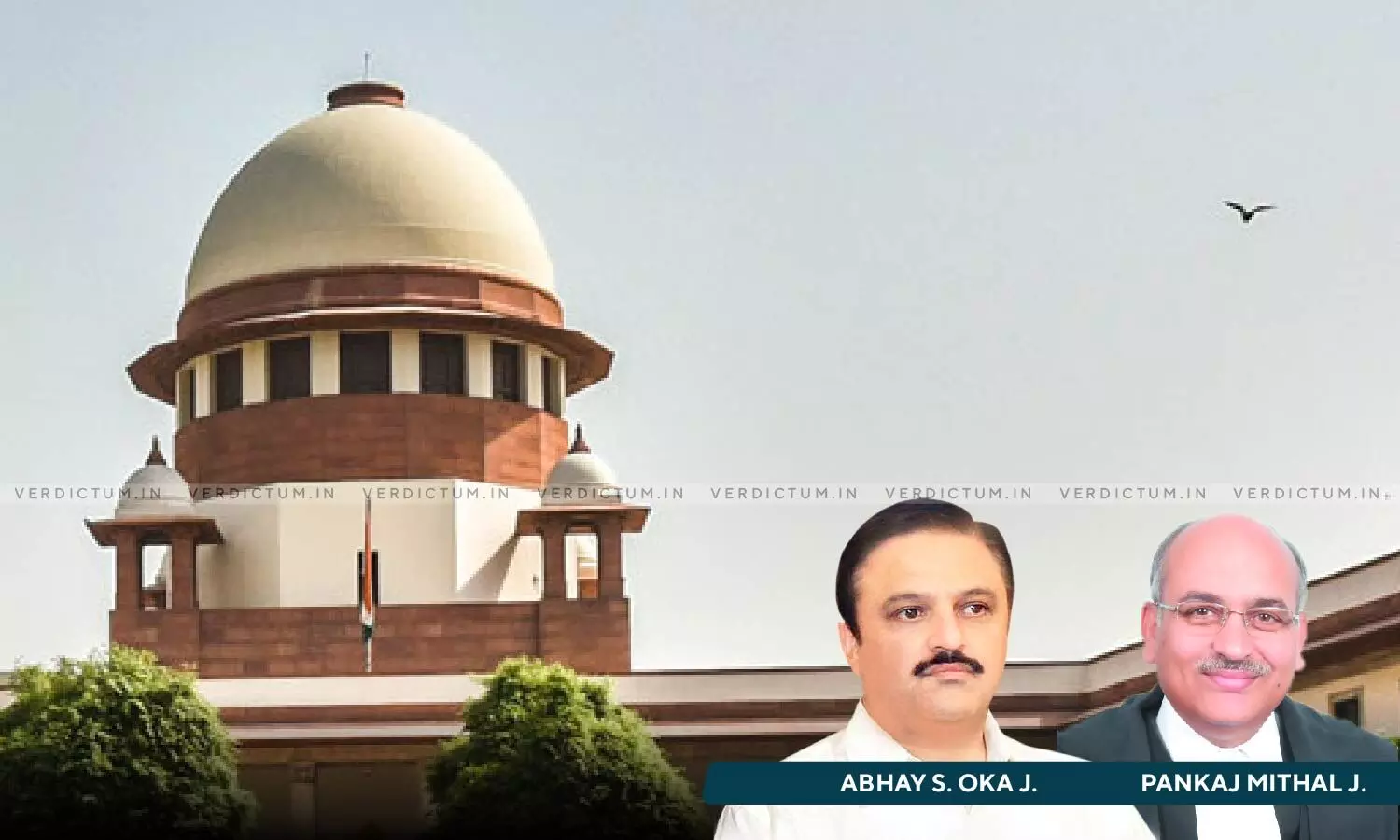
'Judges Are Not Expected To Preach': Supreme Court Disapproves Calcutta HC's 'Every Female Adolescent Should Control Sexual Urge' Remark
 |
|The Supreme Court recently observed that Judges should refrain from articulating their personal opinions in judgments and that it is not within Judges' purview to advocate or espouse personal viewpoints while crafting a Judgement.
The Bench of Justice Abhay S. Oka and Justice Pankaj Mithal was dealing with a Suo Motu Writ Petition, initiated based on the administrative order issued by Chief Justice of India D.Y. Chandrachud against a judgment of the Calcutta High Court in which it observed that "It is the duty/obligation of every female adolescent to Control sexual urge/urges as in the eyes of the society she is the looser when she gives in to enjoy the sexual pleasure of hardly two minutes."
Considering the judgement, the Supreme Court stated, "In the appeal against conviction, the High Court was called upon to adjudicate only on the merits of the appeal and nothing else. But we find that the High Court has discussed so many issues which were irrelevant. Prima facie, we are of the view that while writing a judgment in such appeal, the Hon’ble Judges are not expected to express their personal views. They are not expected to preach."
The Court also observed that the remarks passed by the Calcutta High Court were strongly objectionable and entirely unjustified. The Court also remarked that such observations appear to be in clear violation of the rights bestowed upon adolescents under Article 21 of the Constitution of India. "After having carefully perused the impugned judgment, we find that many parts thereof including paragraph 30.3 are highly objectionable and completely unwarranted. Prima facie, the said observations are completely in violation of the rights of the adolescents guaranteed under Article 21 of the Constitution of India", ordered the Court.
The Court accordingly issued notice to the appellant in the Criminal Appeal as well as the victim girl. The Bench also appointed Senior Advocate Madhavi Goradia Divan as Amicus Curiae to assist this Court. The Court also directed Advocate Liz Mathew to assist the Amicus Curiae.
A Division Bench of the Calcutta High Court was dealing with a Criminal Appeal challenging the conviction in the offences punishable under Sections 363 and 366 of the Indian Penal Code, 1860 as well as Section 6 of the Protection of Children from Sexual Offences Act, 2012 (POCSO Act). The High Court acquitted the appellant of the afore-said offences.
However, the High Court made a remark related to the biological rationale behind sexual urges in adolescents, underscoring that while libido is a natural aspect, the manifestation of sexual urges is contingent upon individual actions. The High Court stated, "It is the duty/ obligation of every female adolescent to: (i) Protect her right to integrity of her body. (ii) Protect her dignity and self-worth. (iii) Thrive for overall development of her self transcending gender barriers. (iv) Control sexual urge/urges as in the eyes of the society she is the looser when she gives in to enjoy the sexual pleasure of hardly two minutes. (v) Protect her right to autonomy of her body and her privacy."
Accordingly, as per the order of the Chief Justice of India, a suo motu writ petition under Article 32 of the Constitution of India was initiated mainly due to sweeping observations/findings recorded by the Division Bench of the High Court of Calcutta in the impugned judgment.
The Apex Court will now consider the matter on January 4, 2024.
Cause Title: In Re: Right To Privacy Of Adolescent [SUO MOTU WRIT PETITION (C) NO(S). 3/2023]